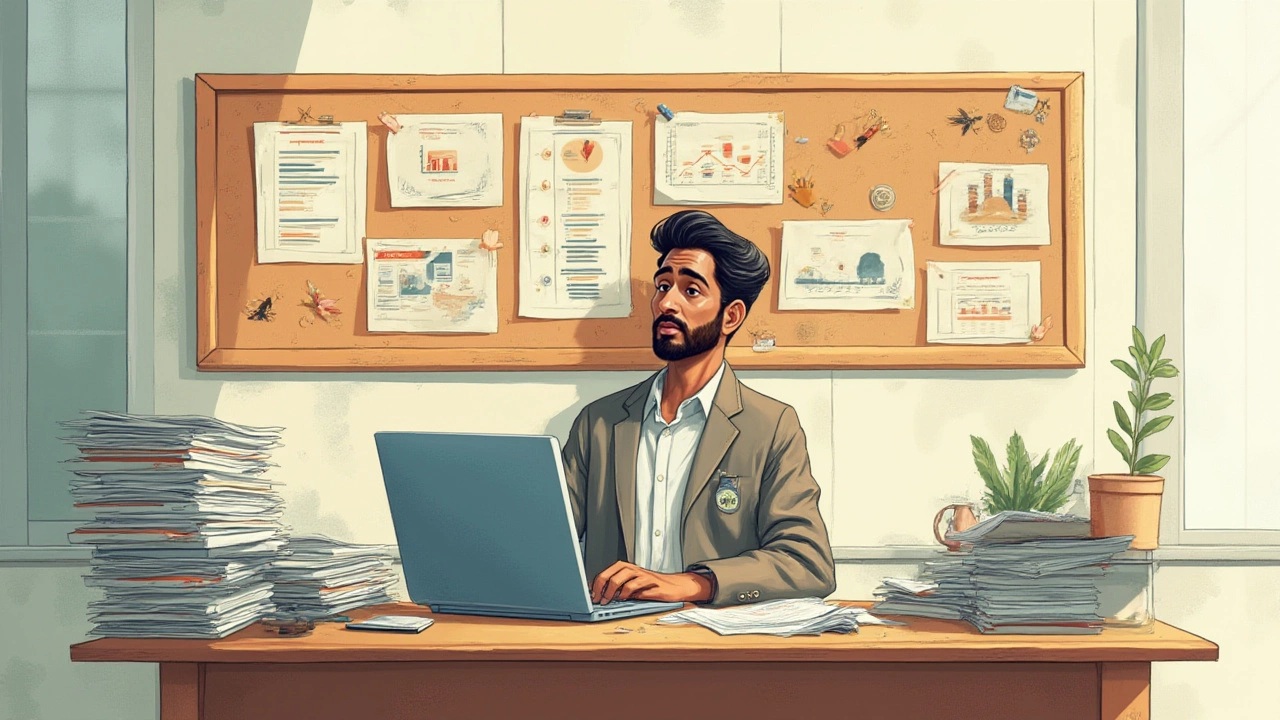Most people think getting a business license is a boring box to check off, just part of opening shop. But here’s a wild truth: the wait for your license can make or break your big launch, eat up savings, or cost you the dream before the first customer even steps in your door. The speed—or delay—often surprises first-timers in Virginia. Nobody ever talks about the paperwork pileup, the random holdups, or the feeling you get when, at the finish line, you realize you missed the tiniest form. The process looks simple on the surface, but there’s a web of steps below, each with its own timeline and curveballs. Whether you’re hoping to open a coffee shop downtown, set up a consulting business from home, or become the next BBQ food truck legend, timing your business license is the difference between opening on day one or scrambling on day ninety-nine. Let’s pull back the curtain on just how long it really takes—and what you can do to move things along.
The Steps Involved in Getting a Business License in Virginia
First up: not every business in Virginia needs the same license, and the clock starts ticking with your very first step. To figure out what you actually need, you have to know your business type (like LLC, sole proprietor, corporation), your planned location (city, town, or county), and what you sell or do. People always forget that in Virginia, there’s no single, magic “state-issued” business license. Instead, you go through local authorities—the city or county where you’ll operate. Some cities, like Richmond or Virginia Beach, want their own applications, while rural counties can have different forms completely.
Here's the flow: after picking your business structure, you’ll usually register the name with the State Corporation Commission if it's anything besides your own full legal name. That filing is pretty fast if you do it online—sometimes as quick as a couple of hours, but give it a business day to be safe. Then you’ll land on the big one: the local business license (sometimes called a business tax, BPOL license, or business privilege license). This step is where the timeline starts to wobble. Some counties let you apply online and get approved in a day. Others process by paper and take two weeks—sometimes three, if there’s a backlog after tax season. If you need permits—for example, health permits for a food business or zoning clearance for a home office—each of these adds a new layer, usually with a separate department and set of forms. Health permits can take up to 30 days if an inspection is required; zoning can be as little as 24 hours or as long as a month, depending on the backlog. Don’t forget that if you sell taxable goods, you have to get a Virginia Sales Tax Certificate from the Department of Taxation—a process that’s usually quick (same day online), but only after you’re registered.
Put all these steps together, and your actual business license timeline can run anywhere from one day to almost two months in rare, especially complicated cases. The record for the fastest license? Someone got their sole proprietor license for a consulting gig in Fairfax the same morning they applied—under four hours, since they’d done all the prep. The record for the slowest? More than six weeks, for a café that had to wait for zoning appeals and three rounds of fire inspections. Most first-timers who walk in with all their paperwork in order get approved in about a week to ten days. Missing a form about signage, owner ID, or use of premises can reset the clock entirely.
How Long Each Step Really Takes—A Breakdown by Business Type
The average timeline for getting a business license in Virginia depends on what you want to do. Paperwork for a tech startup (remote, no walk-ins) is much quicker than opening a restaurant. Check out this breakdown:
| Business Type | Local License Processing | Extra Permits | Typical Total Time |
|---|---|---|---|
| Home-based E-commerce (no employees) | 2-3 business days | Rarely needed | 2-3 days |
| Retail Storefront | 5-10 business days | Zoning/Fire Inspection | 1-3 weeks |
| Food Service/Restaurant | 7-15 business days | Health/Zoning/Fire Permits | 2-5 weeks |
| Consulting/Professional Service | 1-3 business days | Rarely needed | 1-3 days |
| Contractor/Construction | 5-15 business days | State Contractor License plus local | 2-6 weeks |
For unique businesses—tattoo studios, vape shops, childcare—expect lots of extra reviews and possibly criminal background checks. Sometimes these take even longer than the paperwork itself. Tech startups, freelancers, or service pros (like consultants or writers) usually see almost instant approval. The big delays? Always health, fire, and zoning. Food trucks, in particular, often deal with multiple inspections (vehicle and commissary base), and that can add weeks if you’re not ready.
One unusual fact: if you’re launching in Alexandria or Arlington, you can often get your business license the same day in person at the County Commissioner’s office—if you have all forms and skip peak hours. Compare that to some rural counties, where one employee might do licenses, zoning, and taxes, slowing things way down.

Tips for Speeding Up the Licensing Process in Virginia
No one likes waiting on the government, so if you’re impatient like me, you need a strategy. Here’s what actually works:
- Gather every required document before you apply—wasting time chasing missing forms is the number one delay. Check local city or county websites for exact checklists.
- Don’t just rely on online info. Things change fast and sites aren’t always current; call the local licensing office and ask about recent rule updates.
- If you need permits (like food or health), apply for them at the same time as your business license. Parallel processing saves at least a week.
- Walk in, don’t mail or email, if rapid turnaround matters. Showing up with everything in hand often gets you same-day results, especially in smaller jurisdictions.
- For anything involving inspections (like restaurants or salons), schedule them as soon as you file your application—calendar slots fill up during spring and summer.
- File for your EIN (Employer Identification Number) and sales tax certificate online first; these are often needed for the local license and can usually be done in ten minutes.
- Double-check if your business needs a professional/occupational license from a state board. Real estate, construction, salons, and healthcare do.
- Keep extra certified copies of your business entity paperwork. Occasionally, a city will require an original stamped copy, not just a printout.
- If you hit a snag, ask about a temporary license. Some places will grant these while you wait on a slow health or zoning inspection.
- Finally, avoid the post-tax season rush (May and June) when city halls get busy with renewals. Early spring or autumn is usually fastest.
If you’re confused or worried about missing something, talk to a local business lawyer or an accountant who knows the county—they can spot problems before they slow you down. And don’t forget: after you get the local license, keep an eye on annual renewal dates. Virginia counties will not hesitate to suspend licenses for a missed payment or late paperwork.
What to Do If Your License Is Delayed or Denied
Sometimes, things just don’t go as planned. Maybe your address triggers a zoning red flag, or there’s a backlog in the health office. If the wait drags past the average for your area, don’t sit in silence. First, contact the specific office handling your paperwork. City and county licensing clerks in Virginia are usually happy to give updates if you call or show up (emails can vanish into the void). Ask directly what the holdup is—zoning, pending inspection, missing info. If the delay is about something you can fix (like submitting a missing document), get it in ASAP. If you’re caught in a backlog, ask if they offer temporary or provisional licenses. These can allow you to open while you finish the process, provided there’s no public safety risk.
If your application is denied, the letter will say why: wrong zoning, incomplete application, unpaid taxes, unresolved citations, or missing required background check. You usually get a chance to appeal, and in most places, these appeals are handled locally and move fast—think days, not weeks. If it’s a zoning issue, you may need to apply for a special use permit or variance, which could add anywhere from a week to two months, depending on local rules. Most denials happen because someone didn’t check for overlapping county/city rules, didn’t put in all the paperwork, or tried to operate in a residential area without clearance. Don't panic—most problems can be fixed if you’re motivated.
Here’s a quick reality check: very few business licenses in Virginia are flat-out denied. The overwhelming majority are just held up because of missing details or inspections. If you’re proactive about follow-ups, call regularly, and ask how you can help move things along, you’ll almost always get a fair outcome. Just don’t expect the system to hurry for you unless you’re in the office, face-to-face, with every single form at the ready.

